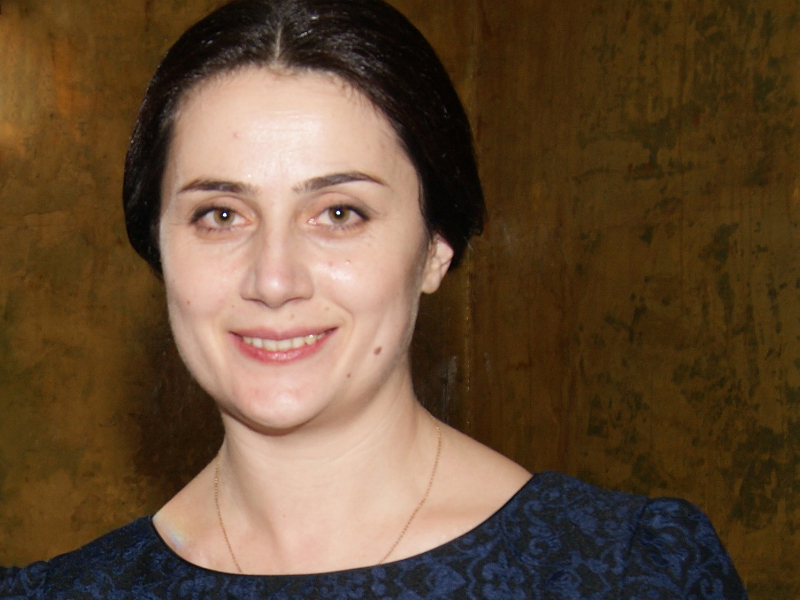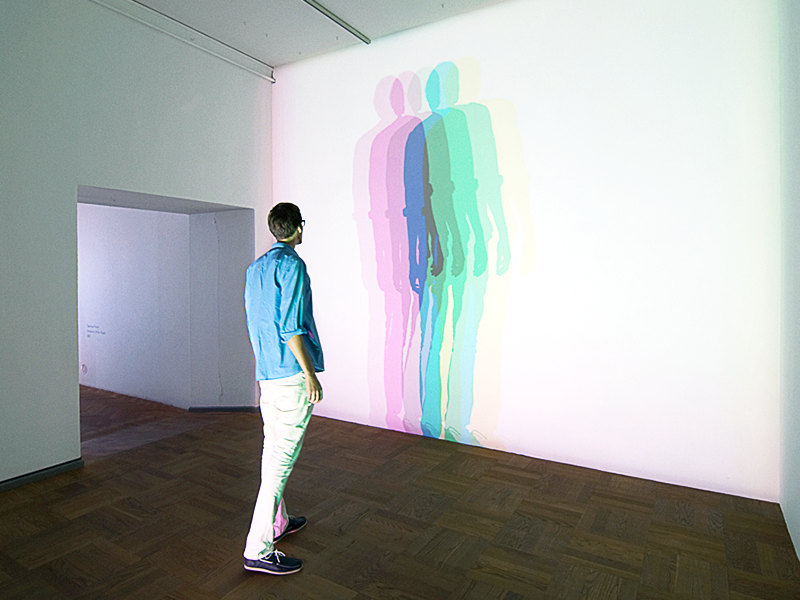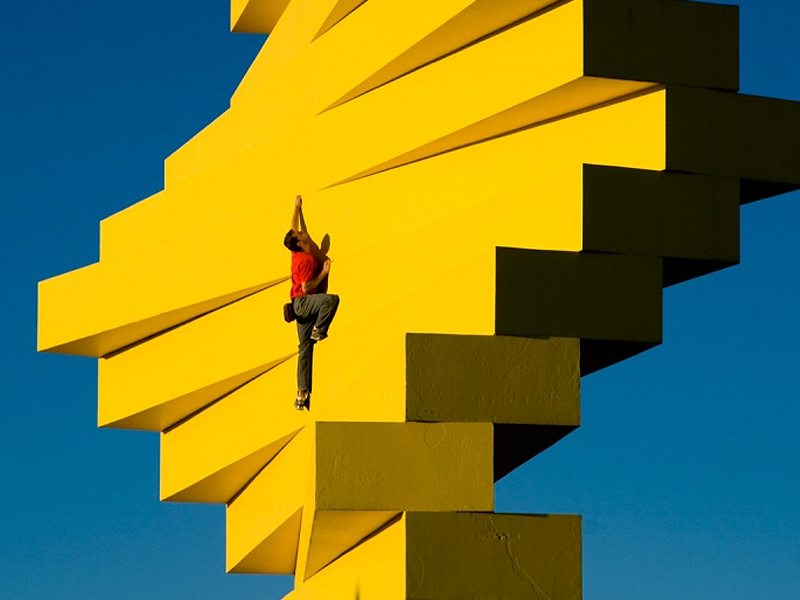
Yerevan Perspectives: How to make a small country renowned by the world mega-stars of classical music?
Sona is an experienced diplomat in the world of arts and art policy. It is to great extent due to her talent in management and negotiation that Yerevan Perspectives Festival has hosted the best world orchestras and musicians: Vienna Philharmonic Orchestra, Royal Concertgebouw Orchestra, London Royal Philharmonic Orchestra, Berlin State Orchestra, Israel Philharmonic Orchestra, legendary conductors Daniel Barenboim, Michael Tilson Thomas, Lorin Maazel, Valery Gergiev, Zubin Mehta, famous soloists Pinchas Zukerman, Evgeny Kissin, Joshua Bell, Plácido Domingo, Renée Fleming and others.
Yerevan Perspectives is a member of the European Festivals Association since 2007, while 2015 witnessed a Festival Music Academy launch in Byurakan.
How did you establish the festival and what were your expectations at that time?
Sona Hovhannisyan: There is, of course, no denying that we were quite ambitious at the time. We began to think about opening a festival in 1999, which was the 9th year of Armenia's independence. It was surely a big challenge to launch a festival that aimed at making our country one of the world's cultural centers. We were very well aware of what we wanted- the values we aspire to adhere to.
We never looked for gradual development. One of the fundamental elements of our philosophy was that most of the other things can evolve gradually, but not the quality. It would be enough for us to see really good or famous musicians on our stage. We always did our best to bring to Armenia the high-class mega stars of classical music and to create a cultural atmosphere similar to what one can experience in Paris, London or New York.
The arrival of Vienna Philharmonic Orchestra, Kronos Quartet, the Berlin State Orchestra with Daniel Barenboim and many-many others to Armenia would mark not only their first visit to the Caucasus soil, but also on the territory of the Eastern Partnership countries. I believe that it is because of the mission we chose and our professional approach that we managed to succeed and make our region distinguished by classical music mega-stars of global renown.
What resources did you have at that time? What made it possible for you to believe that you will make it?
Our fanatical passion has always been our main resource. As early as the first year of our existence (2000) we secured a grant from Open Society Institute (OSI). And as it focused on Eastern Europe countries, we had many groups from Ukraine, Georgia, Estonia, Hungary, Lithuania and Russia. I remember how we were warned that we would not be able to handle that big amount of guests within the scope of the grant (the scale was quite intimidating, indeed). This was the only year that the festival covered multiple areas of art: music, modern art, theatre, etc.
For sure, in the very beginning we were looking at Edinburgh Festival for an example. The founder of our festival, the famous composer Stepan Rostomyan was invited to work in Scotland in the late 1980s. Glasgow warmly welcomed his works along with others by Gubaidulina, Schnittke, Kancheli, Denisov and Xenakis. That was exactly the period when a number of Soviet composers immigrated to the West.
With this lure of the West, Rostomyan got this crazy idea: to bring all that glamour and excitement of the Edinburgh Festival to the newly independent little country of Armenia. Those years were definitely full of hardships, hard work and struggle, but it all transformed into a beautiful story, in the end it is not the financial resources alone that make a project successful. Many rich countries in the world that simply do not bear the institutionalized festival structure like the one we managed to create.
What are your negotiation strategies with mega-stars and celebrities? It is, of course, not all about the remuneration. They are coming to an unknown country, they have no idea what to expect in terms of conditions, and more often than not there are also some political challenges...
Armenia is well famous as a country with an ancient and rich cultural history. But I must say that it is far from being enough to attract the most outstanding performers and best orchestras of the world. Remuneration also does not play the major role, as in the case of our festival there are always huge favors on the part of the guests.
The year the festival was founded, Stepan Rostomyan invited famous musicians and his friends to participate: the violinist Tatiana Grindenko, the pianist Aleksei Lyubimov, the conductor Valeri Matukhin. Later on the festival’s reputation simply grew at an accelerated pace- it secured its place on the global cultural map. Unquestionably, this would never be possible without utter loyalty: there should be people ready to dedicate their lives to the festival.

We know that there is a lack of managers in the field of culture and no professional educational programmes in this area in Armenia. How do you handle this challenge?
Our team was formed in the course of the last decade. These people are enthusiasts, people who are ready to toil day and night. Most of them are linguists, highly educated and intelligent people. But when they started with us they had literally no experience.
Armenia was always famous for a very high culture of communication. We all understand that the role of festivals is not only to promote cultural values, but to provide opportunities of a significant political value as well. It is the countenance of a country, its business card that generates ambassadors of its own culture and enables it to find new friends for the country. Furthermore, it is of vital importance who is in the front line of communication with the great musicians, our guests, who is accompanying them and so on. I must admit that our guests are usually just charmed by the warm and professional welcome they receive. This long-term experience of every single member of our team makes them valuable assets for any international festival.
For instance, when we had a concert by Royal Concertgebouw Orchestra, we had 35 volunteers helping us out, constantly assisting and socializing with the orchestra musicians and its management. The guests were so impressed by the reception that when they left, the orchestra then sent 35 personalized appreciation letters to Yerevan along with compact disks.
Who was the hardest to win over to get him/her to the festival?
I can mention the unique story with the Kronos Quartet. It's a legendary American Quartet and we tried to invite them to Armenia as early as in 2001. It appeared as though they could not find time for us in their schedule or simply were not that interested in this region. We, however, kept inviting them every single year from 2001 on. So when the posters were finally in the streets, we were told that people were wondering if it was a fraud. The then US Ambassador to Armenia was skeptical as well. He was strongly convinced that the famous quartet, the staple symbol of his country making soundtracks for Hollywood movies, would never come to Yerevan, and would go for half the fee if they ever really come. It did happen a few months later in 2004.
Just as impressive was the concert by Tokyo String Quartet. The musicians brought from so-called Paganini Instrumental Quartet – the instruments by unrivalled Stradivari that used to belong to Niccolò Paganini himself.
Of course we did have our trailblazers who assisted us with the creation of our unique story, for instance, the master pianist Evgeny Kissin. We had been negotiating with his managers for 4-5 years but to no avail. One day I got a letter from Kissin himself. He wrote that he had been following our festival for a number of years and believed that he could come. He then came three times to the festival with unforgettable performances. Evgeny Kissin is not only a mesmerizing musician, but also a great fighter for human values and is a real friend of our country. I cannot leave out the composer and pianist Rodion Schedrin, dearly remembered ballet mega dancer Maya Plisetskaya and polish composer and conductor Krzysztof Penderecki.
What are your dream invitees now, whom would you like to see in Armenia?
Under the 2020-2021 programme, we are planning to invite to the country one of the best world violinists – Janine Jansen. We are also fixating the dates of concerts by violinists Leonidas Kavakos and Gil Shaham. Today Yerevan Perspectives is in the top 10 of the best European festivals well recognized around the world. Our programme, just like before, has the artists who have never been to this region.
The dates of the upcoming Yerevan concerts by Martha Argerich and Berlin Philharmonic Orchestra are to be published soon.
Have you managed to attract sponsors from the private sector?
There are some companies that truly believe in the support of culture. But if our taxation system do come up with certain preferences for local companies for such cases – I am sure we will have no problem finding sponsors.
It is the issue to be handled on a personal level, isn't it?
Yes, indeed. It all comes down to a person, to the decision made by executives and owners. As we all know, sometimes companies are going through hard times themselves and could no longer continue the sponsorship, but there were coming up others. Moreover, starting from 2008 the state started to support the festival on a quite unprecedented level. Now I have something to be really proud of- that despite the changes in power, we still have that support. In other words, everybody is of the same opinion: the festival is important for the country and should continue to exist, regardless of the circumstances.




